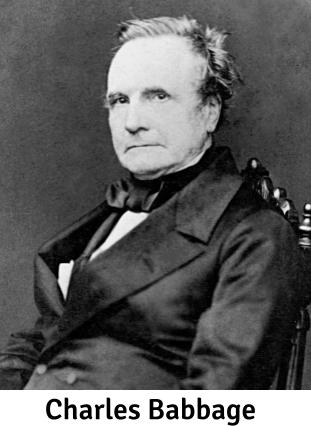Charles Babbage, born in London, England in December 26, 1791, is the man who is widely considered to be the inventor of the digital computer. He is also known as the Father of computer.

| Name: | Charles Babbage |
| Born: | December 26, 1791. (London, England) |
| Died: | October 18, 1871. (London, England) |
| In Which Year: | Early 19th century. |
Why was Computer invented?
Charles Babbage started working on computer in 1812, however the term computer was not used at that time. The idea was to create a mechanical table to perform mathematical calculations. He was able to successfully build a small calculator that can perform various calculations.
In 1820, Charles made a mechanical calculator to solve polynomial functions. It was named difference engine. Charles realised, he can improve the design and an analytical engine is possible, which he was able to build in 1837.
The project of analytical engine was almost complete when British government seized the project for lack of funding. Charles son Henry Babbage, completed the design in 1888 and gave a successful demonstration in 1906.
First general purpose computer
The first general purpose computer was build by J Presper Eckert and John Maucley in the February 15, 1946. The name of the first general purpose computer was ENIAC.
These first generation computers used vacuum tubes for the computer circuits and magnetic drums for the memory storage. The size of these computers were huge and require high amount of electricity.
UNIVAC and ENIAC are considered the first general purpose computers, the UNIVAC was the first computer which was sold commercially to Census Bureau in 1951.
Analog computer
These computers were introduced in early 20th century. Analog computers were able to perform more complex mathematical problems compared to their predecessors, however they were not accurate and versatile compared to today’s modern computers.
The first modern analog computer was named tide-predicting machine. It was invented by Sir William Thomson in 1872.
Modern computers
Alan Turing is known as the father of modern computers. He was the one who proposed the principles of a modern computer machine in 1936. His idea was to build a machine that can solve any problem that can be solved by giving set of instructions. The original machine that he proposed named “Universal Computing Machine”, which is now known as “Universal Turing Machine“.
Modern computers are based on Universal Turing Machine principles as they can perform calculations based on the system instructions. Modern computers are known as Turing Complete machines.